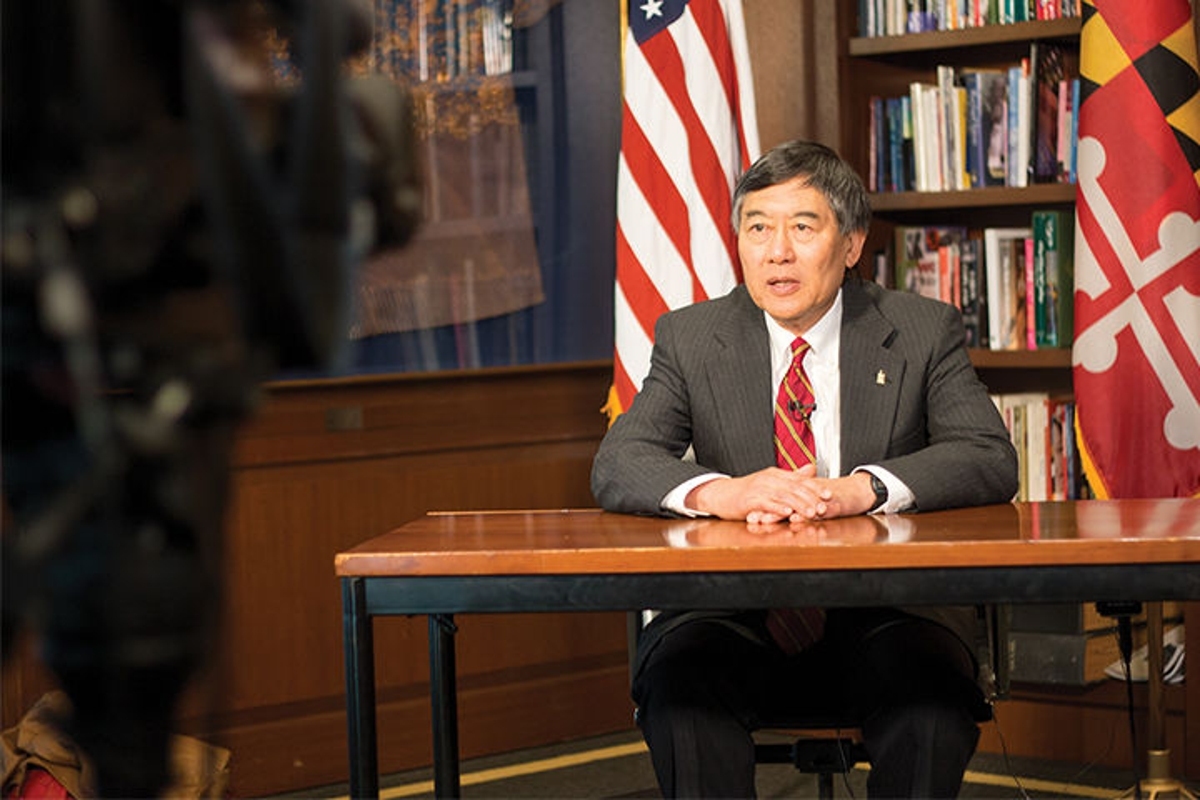University of Maryland President Wallace Loh sent a message to the campus community Tuesday morning reaffirming his opposition to President Trump’s immigration ban.
“As a public institution, the University of Maryland does not normally take stands on political issues,” Loh wrote. “However, we have an obligation to speak out when government actions are fundamentally antithetical to the core values and missions of the institution, especially when they adversely impact many members of our community.”
Trump’s immigration ban, signed Friday, restricts citizens from seven predominantly Muslim countries from entering the United States for 90 days and bars refugees from being admitted for 120 days. Syrian refugees are banned indefinitely.
Trump’s travel ban affects about 350 people in the campus community, most of whom are graduate students, post-doctoral researchers and visiting scholars at this university, Loh wrote.
Abubakr Suliman Eltayeb Mohamed Hamid, an engineering doctoral student, traveled to his home country of Sudan during winter break and is now unable to return because of the ban. Another student, Aida Mohammadi, was detained in Washington Dulles International Airport Saturday night for about five hours after returning from visiting relatives in Turkey.
A visiting professor from abroad is also no longer coming to this university because of the executive order, despite not being subject to the ban, Loh wrote.
Two undergraduate students and 94 graduate students from this university are from Iran, and at least one student is from Sudan, according to data from the Office of Institutional Research, Planning and Assessment.
Students should not travel abroad at this time, Loh wrote.
Loh also expressed concern about another executive order issued Wednesday that strips federal funding from sanctuary cities — which seek to protect undocumented immigrants — and punishes jurisdictions that don’t hand over these immigrants for deportation.
The order affects 20 students here under the DREAM Act as well as the 113 undergraduate and graduate students attending this university as of fall 2016 under the Deferred Action for Childhood Arrivals policy. The Obama administration’s 2012 policy allows undocumented youth to work and study in the United States.
This university will continue to protect those affected by these orders by not releasing information regarding students’ immigration status unless required by law, Loh wrote. He added that students will not be turned over to Immigration and Customs Enforcement without a court order.
Loh has joined more than 600 college and university presidents across the country in urging the nation’s leaders to continue upholding and expanding DACA and supporting students who use it.
This university has also joined the Association of American Universities in backing the Bridge Act, which was introduced in the Senate last year and aims to provide protection and relief to undocumented Americans if DACA is eliminated.
“We will continue to press the case before the new Administration for why the research university — with its values and missions — is essential to the future of our nation,” Loh wrote. “We are in this together.”



